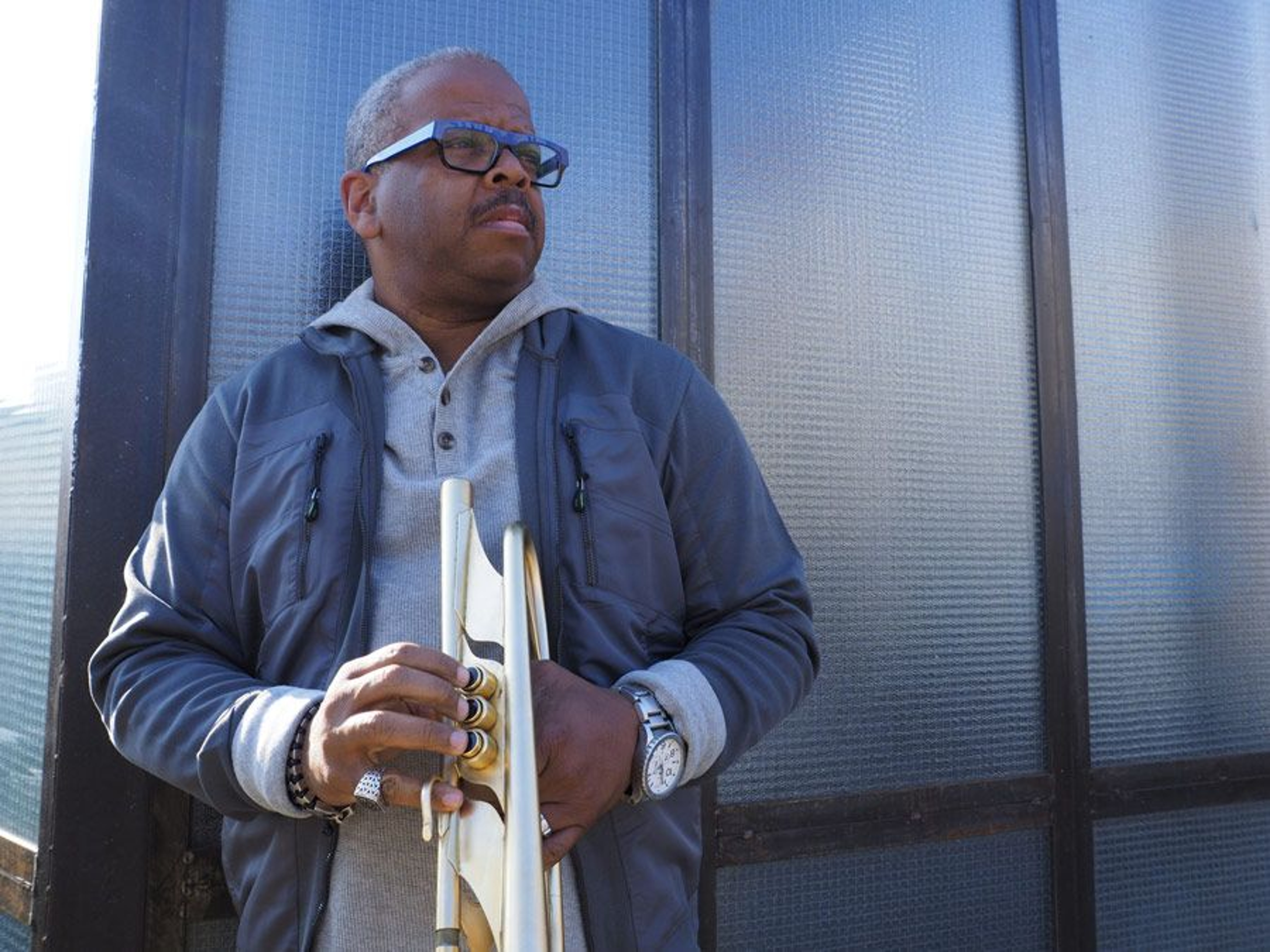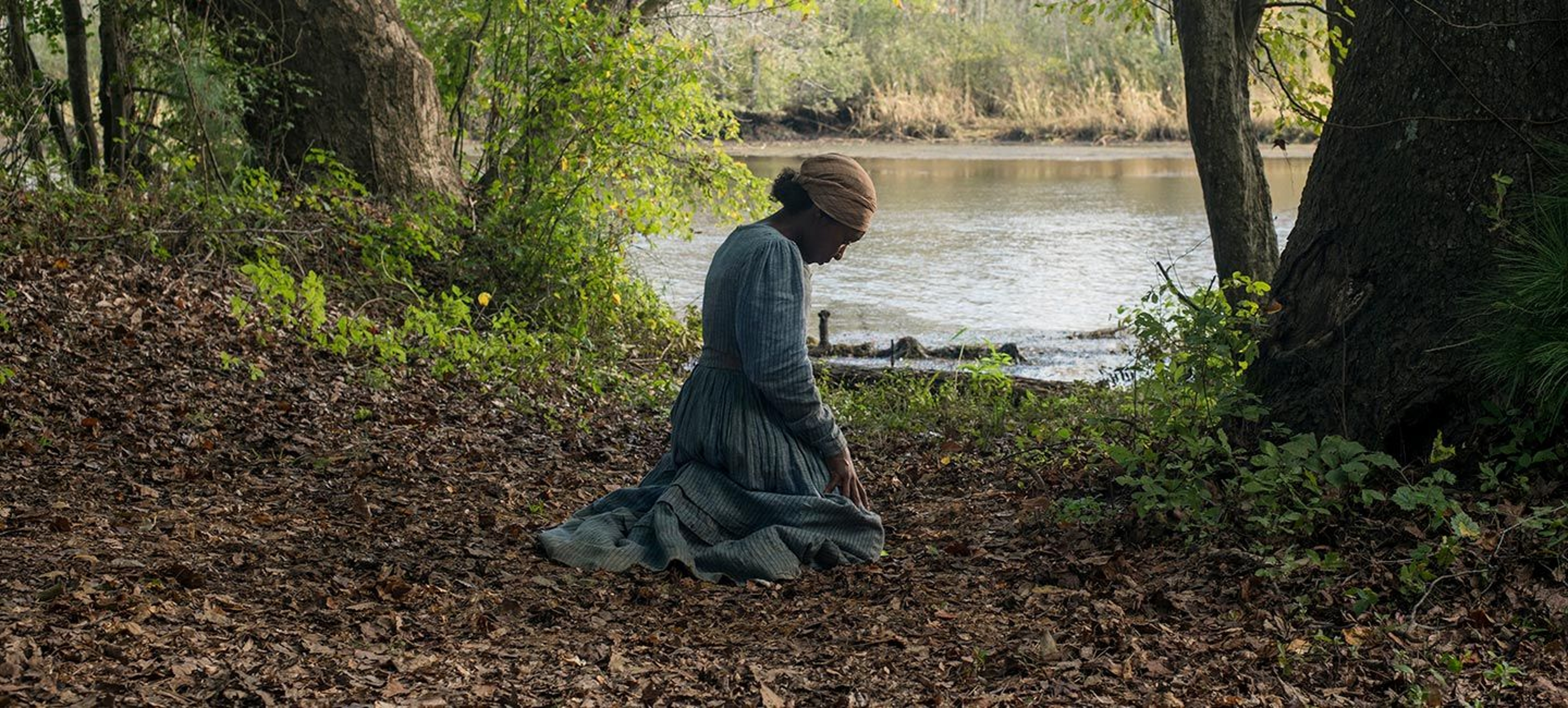Composer Terence Blanchard is no stranger to history. For nearly forty years, he has been writing film music that brings history alive. From the sweeping, like his epic score for Malcolm X, to the heartbreaking, as with his music for the Civil Rights documentary 4 Little Girls, Blanchard's music sets the perfect tone for every period. In 2018 he was nominated for an Academy Award® for his propulsive seventies score for Spike Lee’s BlacKkKlansman. To bring the life of Harriet Tubman (Cynthia Erivo) to the screen, director Kasi Lemmons reached out to him to score Harriet. Blanchard, who'd laid down a funk and R&B groove for Lemmons' 2007 biopic Talk to Me, took a more soulful approach to Harriet.
We spoke to Blanchard about what he wanted the music to tell us about the great freedom fighter, the honor he felt working on this film, and how he translates his feelings into music.
The official trailer for Harriet
Did you have a sense from the start how you wanted to approach this story musically?
I wanted to pay homage to and show the strength of Harriet. We even joked at some point about making her an action hero of some sort. Although I did not want to create a sentimental score, I wanted it to have a certain type of tenderness—not overbearing, not something that is over the top, but something that shows fortitude.
How did the score evolve?
After Kasi sent me materials, I started developing some thematic ideas. We decided to focus on a pivotal moment, the scene where Harriet crosses a river. I came up with an idea which really opened Kasi's mind as to where the music could go. In the scene, when so many are scared of going into the water, you see this little figure crossing the river. You see the strength of her faith when she stops to pray. As such, the music needed to show her conviction and power. I came up with a sweeping sequence that is very moving. Kasi loved it and wanted to use it at the beginning of the film as well.
Having done so many scores dealing with historical subjects, did any of them help you focus the music for Harriet?
Not really. My inspiration didn’t really come from a film. It came from real life. I was inspired by the lives of all the disenfranchised people who have had to struggle to be treated as equal. What moved me to tears was the notion, “Give me liberty or give me death.” Many people may not understand what that feels like. Truth be told, I have never been put in a situation where I fully understood what that felt like. But I have come close. Seeing the struggles of people throughout various generations of my family, of the culture that I grew up in—those are the things that I drew upon to create the emotional resonance in the film’s score.
As a composer, how do you translate those feelings into music?
You allow the emotions to guide you. Years ago, when I got into this business as a jazz musician, I wanted to write the hippest, most cutting-edge kind of music. But at a certain point, I realized that the way rhythms and harmonies move people doesn't really change. It may evolve over the course of time, but the basic elements still hold true. You have to put your ego on hold and allow those things to guide you. Now as a composer, I am not trying to write the hippest thing around, but rather the right thing for one particular scene, for one movie.
How did you adjust the instrumentation and orchestration for this story?
Orchestras have a sound and power that everyone can relate to, but, like with great food, you can season it to turn it into something new. For this score, I used drums to bring in something new. Throughout the score, I used a lot of different ethnic drums, including African drums, which I layered underneath the orchestration.

Composer Terence Blanchard
Did you focus on other instruments as well?
I really loved the idea of using the violin and cello as solo instruments. Cello has always been a favorite of mine because it comes closest to having that tonal quality you hear in the human voice. At different moments, I used both solo instruments, the violin and cello, to represent Harriet and her sister Rachel (Deborah Ayorinde) or Harriet and Marie (Janelle Monáe).
In addition to being an actress, Cynthia Erivo is a talented singer/songwriter. Did that influence the score in anyway?
I noticed it, but I wasn’t thinking about it. Cynthia's performance is so powerful that I was simply absorbed by what was happening on screen. I forgot all those personal things and she just became Harriet Tubman. I felt honored to be working on the film. For me, it was a lot like working on Malcolm X, focused on a person whose story needs to be told and working with a person who could tell it in a magnificent way.
This is the first real film about Harriet Tubman. Did you feel a responsibility to find the right tone for her story?
Oh definitely. Years ago, when I was working on Malcolm X and I was a little nervous, the production designer Wynn Thomas told me, “We all want to do a 110%, but the best thing we can do is just to do our jobs.” That really calmed me. “Right. Don’t overdo this. Just do your job." In making this film, I allowed Harriet to tell me what she needed in every scene.
What do you hope viewers take away from the film?
The fact that this was an incredibly powerful woman. In the midst of serious danger and oppression, she took it upon herself to do what was right and help others. I hope that when people see this film that's what they take away from it. We have these debates now about whether she should be on the currency. All of those things are fine, but we really need to remember what an incredible human being she was.
Sign up for the Focus Insider newsletter to be first in line for free advance screenings, world premiere travel packages, weekend set visits, and so much more!
